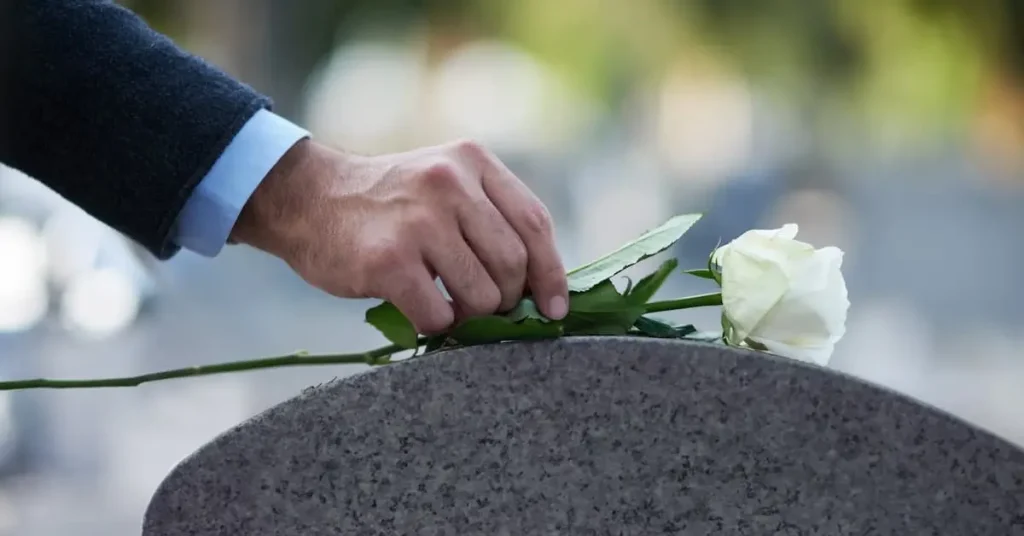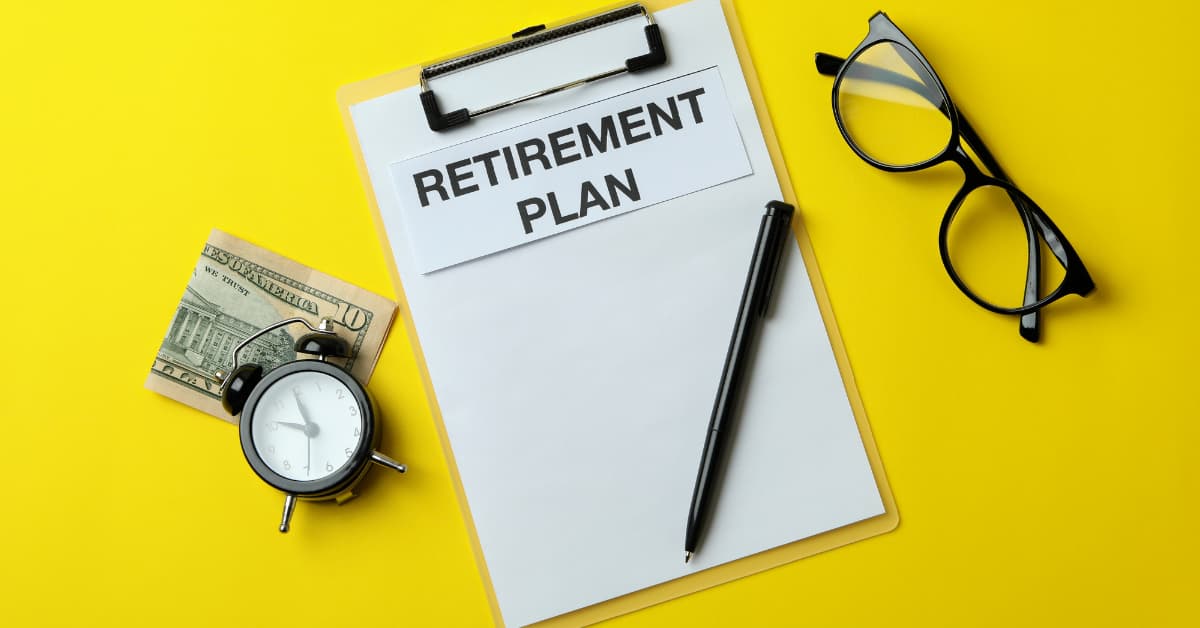Losing a loved one is an emotionally challenging experience, and dealing with the aftermath of legal and financial responsibilities can be overwhelming. This checklist of what to do when someone dies will help you get organized to take one step at a time towards completing the estate transition, and hopefully, it will also bring you some peace of mind along the way.
What To Do Financially When Someone Dies (8 Important Actions)
| Priority Task | Reason for Priority |
|---|---|
| Obtain Legal Pronouncement of Death | Secures official documentation necessary for all subsequent legal and financial processes. |
| Notify Family and Close Friends | Ensures immediate support and initiates the process of communicating the loss to the broader community. |
| Secure the Deceased's Property and Assets | Protects against potential theft, damage, or unauthorized access, preserving the estate's value. |
| Locate and Review Estate Planning Documents | Identifies the executor and provides guidance on asset distribution and other final wishes. |
| Notify Relevant Government Agencies | Prevents overpayments and initiates survivor benefits; includes agencies like Social Security and Veterans Affairs. |
| Contact Financial Institutions and Advisors | Facilitates the management and eventual distribution of financial assets; includes banks, investment firms, and insurance companies. |
| Settle Outstanding Debts and Liabilities | Ensures legal obligations are met, preventing potential claims against the estate. |
| Distribute Remaining Assets to Beneficiaries | Fulfills the deceased's wishes as outlined in the will or trust documents. |
The 17 Step Checklist for What To Do When Someone Dies
1. Notify Loved Ones
The first and most immediate step after the death of a loved one is to notify family and close friends. This step can be like a double edged sword though. Some loved ones may be very empathetic in helping you through the grieving process, some may not be as considerate.
Some of these conversations may open the door to questions and logistics that you may not be prepared to answer. You don’t have to have all the answers right away, and it’s ok to ask loved ones for some time while you sort out the details. Our hope is that the rest of this checklist after a death of a loved one will help clarify the next steps in the process, the answers to the questions that come up, and solutions to the logistical issues.
Involve close family and friends in spreading the word to extended family and other acquaintances. This collective effort helps the news reach all relevant parties without overburdening one person. Delegating this task can also allow you to focus on immediate arrangements and personal grieving.
2. Identify the Executor
If the deceased had a will, then that should designate who is the executor. If one has not been identified, then the probate court will choose the executor. Since you are reading this, then there is a decent chance that you are the executor.
The executor’s role is to carry out the deceased wishes and settle the estate. This includes:
- Filing the will with the probate court
- Notifying creditors and beneficiaries
- Managing and safeguarding the estate’s assets
- Paying any debts and taxes owed by the estate
- Distributing the remaining assets to the beneficiaries
This article goes into more details on these responsibilities throughout the article.
3. Communicate Boundaries and Expectations
Clear communication with family and friends about the boundaries and expectations surrounding the handling of the deceased’s estate can prevent misunderstandings and conflicts. This is especially important if multiple people are involved in the process. Discuss the roles and responsibilities of each person involved to hopefully create a smooth transition and management of duties.
Secure the Deceased’s Home
Securing the deceased’s home is crucial to protect their belongings and important documents from potential theft, damage, or disputes. Some people may say ‘This person promised me I would get this’. You can tell them that we are not distributing anything yet until everything is organized and documented.
Using ‘we’ instead of ‘I’ when explaining the estate’s plan can be beneficial because it positions the estate as a group of people working as a team. So it’s not simply a 1-on-1 conversation where one individual can persuade another.
Gather Important Documents Before Giving Anything Away
Locate and secure important documents such as the will, birth and marriage certificates, social security card, and any financial statements before allowing anyone to remove items from the home. This necessary paperwork will help to manage the estate effectively.
Taking these steps prior to distributing anything preserves the integrity of the estate’s contents which is a common area of dispute among friends and family.
4. Contact the Funeral Home
Arranging the funeral is one of the immediate tasks following a death. The funeral home can assist with handling the remains as well as other logistics.
They also can help you obtain multiple copies of the death certificate, which you will need for various legal and financial matters. It’s advisable to get several physical copies, because many institutions require an official death certificate. Having multiple copies on hand can expedite processes such as closing accounts and filing insurance claims.
Also this is a good opportunity to ask them what steps they are able to take on your behalf, and what other remaining steps exist for you.
5. Contact the Church
You can choose to have the Funeral Home manage the funeral in totality, or you can also decide if the church will be involved. A common approach is to allow the Funeral Home to handle the remains, and have the church handle the service.
Talk to the Pastor about your options and decide which type of service will occur. (Funeral, Memorial Service, Celebration of life, or some other format)
6. Seek Professional Assistance
First, if the person who passed was already working with an Estate Attorney, Financial Advisor, or an Accountant, then those exact professionals they were working with should treat you as one of their own. This delegation may save you some time, avoid mistakes, and reduce some of your stress knowing that a knowledgeable professional is in your corner.
If they didn’t have a working relationship with any of those types of professionals, consider a free consultation with a few professionals to ask questions and help you through the process. These professionals can provide advice and assistance on matters such as probate, tax filing, and asset distribution.
Some people may also benefit from joining a grief group or from a consultation with a mental health professional during this time. This may help cope with the emotional and mental toll of this difficult chapter of life.
7. Notify Government Organizations
Several government organizations need to be informed about the death to address any changes of benefits and other administrative matters.
Social Security Office
Notify the Social Security Administration to stop payments and inquire about possible survivor benefits. This is a critical step to prevent overpayments, which would have to be repaid.
Veterans Administration
If the deceased was a veteran, contact the VA to determine if there are any benefits available, such as burial benefits or survivor pensions. Veterans may be entitled to various forms of assistance, so it’s important to explore these options.
Medicare/Medicaid
Inform Medicare or Medicaid to stop coverage. This prevents any future medical claims from being processed. Additionally, check for any outstanding medical bills that need to be settled.
Other
Notify other relevant government agencies as necessary, such as the IRS for tax purposes. This helps to keep all records up-to-date and helps prevent potential future tax issues.
8. Contact the Deceased’s Former Employer/s
The deceased’s former employer/s may have unclaimed benefits or accounts that need to be addressed.
Contact the human resources department to check for any benefits such as life insurance, retirement accounts, or final paychecks. Some employers also offer survivor benefits or death benefits. These can be a valuable source of financial support during a difficult time.
If the deceased served in the military, contact the Defense Finance & Accounting Service – 888-332-7411
If the deceased was a former federal civil service employee, contact the Office of Personnel Management – 888 767 6738
9. Contact Insurance Companies
Notify all insurance companies of the death to handle policies and claims.
Life Insurance
File a claim with the life insurance company to receive any benefits due. This usually requires a copy of the death certificate and the policy number. Life insurance proceeds can provide immediate financial relief and help cover funeral expenses.
Health Insurance
Inform the health insurance company to stop coverage and address any outstanding claims. This prevents future claims from being processed in the deceased’s name.
Homeowners/Car Insurance
Update or cancel these policies as necessary to reflect the change in ownership. This is important to protect the estate’s assets and avoid paying future unnecessary premiums.
Long-Term Care Insurance
Notify the long-term care insurance provider if applicable. Depending on the policy, there may be refunds or other benefits that can be claimed.
10. Make a List of All Debts and Bills
Compile a comprehensive list of all outstanding debts and bills. This includes mortgages, credit card bills, utilities, and any other recurring payments. This can help to avoid accumulating late fees and surprises in the future.
11. Inventory All Assets as of Date of Death
Create an inventory of all the deceased’s assets, including real estate, personal property, bank accounts, investments, and other valuables. This inventory is crucial for estate management and may be needed for probate and tax purposes.
An accurate inventory helps in making sure nothing is overlooked in the fair distribution of assets among beneficiaries. This inventory should include descriptions, estimated values, and locations of all assets.
12. Contact Credit Card Companies to Notify Them of the Death
Inform credit card companies about the death so they can close the accounts and prevent any unauthorized use. Provide them with a copy of the death certificate and request that they update their records.
Managing Credit Card Debts
Credit card debts must be handled according to the laws of the state and the terms of the estate.
Prevent Identity Theft – Notify Credit Bureaus
Notify the major credit bureaus (Equifax, Experian, and TransUnion) of the death to place a death notice on the deceased’s credit report and prevent identity theft. This helps to protect the deceased’s identity and credit from fraudulent activity.
3 Steps to Prevent Identity Theft
- Place a Fraud Alert: Contact the credit bureaus to place a fraud alert on the deceased’s credit report
- Monitor Accounts: Keep an eye on any remaining accounts for suspicious activity
- Secure Personal Information: Safeguard documents containing personal information to prevent unauthorized access
13. Call DMV to Cancel Driver’s License
Contact the Department of Motor Vehicles to cancel the deceased’s driver’s license to prevent fraudulent use and to update their records.
14. Cancel Memberships
Cancel memberships to clubs, organizations, and subscriptions to avoid unnecessary charges and potential fraud. This includes gym memberships, magazine subscriptions, and any other recurring services.
Close Email and Website Accounts
Manage the deceased’s digital presence by closing email and website accounts. This may prevent potential hacking and misuse of these accounts.
Memorializing vs. Closing Social Media Accounts
Decide how to handle the deceased’s social media accounts. Social media platforms have different policies for handling accounts of deceased users. You may need specific access or legal proof to manage these accounts, so be prepared to provide documentation such as a death certificate and proof of your relationship to the deceased.
Some social media platforms allow you to memorialize accounts, which preserves the account as a tribute. Memorializing an account can provide a space for friends and family to share memories and condolences.
Alternatively, you may choose to close the accounts to prevent unauthorized access.
15. Communicate with a CPA to Prepare Estate Tax Return
Estate tax laws can be complex and vary by state. Work with a Certified Public Accountant (CPA) to prepare and file any required estate tax returns. (Ideally, the CPA that the deceased was already working with prior to their passing)
This accomplishes several things in one step:
- Delegates some of the financial complexities
- Helps to make sure that the estate’s financial obligations are being handled
- It may potentially result in a lower overall tax bill for the estate
16. Identify Mandatory Withdrawals from Accounts such as IRAs
Some retirement accounts have specific rules regarding distributions after the account holder’s death. Identify any mandatory withdrawals required from accounts like IRAs to avoid penalties and plan for the necessary distributions. Depending on your relationship with the deceased, the type of account, and several other factors, the distribution rules can vary.
17. Consider Working with an Estate Attorney
An estate attorney can help navigate complex legal requirements, facilitate the proper execution of the will, and assist in resolving any disputes that may arise. (Again, ideally this would be the Estate Attorney they were already working with, or wrote up their estate documents with)
This professional guidance can be invaluable in managing the estate efficiently and correctly.
Benefits of an Estate Attorney
- Legal Expertise: An estate attorney can provide professional advice on probate and estate laws, to help you comply with legal requirements
- Dispute Resolution: If there are conflicts among beneficiaries or disputes regarding the will, an estate attorney can mediate these issues and provide clear guidance
- Efficient Process: An attorney can streamline this process which might save you time on paperwork and legal procedures
Conclusion
If someone close to you has passed, our condolences are with you during this incredibly difficult time. We hope that this checklist after a death of a loved one helps to provide a sense of clarity and reduces some of your stress.
While the logistical tasks are necessary, it’s even more paramount to prioritize your own mental and emotional health. Ideally, you have the right combination of loved ones and professionals to help you through this time. And if you need help staying organized, or simply want to plan ahead, we may be able to provide some guidance to you.
The delegation of some of the more technical tasks may help you spend a little more time honoring the memory of your loved one in a meaningful way.







